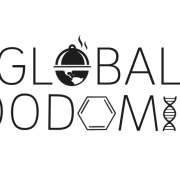New Spanish-language e-book about fermented foods now available for download
By Dr. Gabriel Vinderola, PhD, Associate Professor of Microbiology at the Faculty of Chemical Engineering from the National University of Litoral and Principal Researcher from CONICET at Dairy Products Institute (CONICET-UNL), Santa Fe, Argentina
Fermented foods and beverages such as yogurt, wine, beer, kefir, kombucha, kimchi, and miso are created with the help of microbes. After more than 10,000 years of practice around the globe, fermentation has finally caught massive attention from a general public interested in knowing more about the fascinating, invisible world of microbes. In essence, the act of fermentation places food in a unique place between raw and cooked. The flavours, tastes, textures and potential health benefits of fermented foods, made possible through the presence of viable or non-viable microbes and their metabolites, are achieved through this set of ancestral food processing techniques. Today’s science allows us to see the functions of fermentation microbes that can make certain nutrients more bioavailable in foods. Fermentation can also reduce certain anti-nutrients and generate a large number of potentially beneficial microorganisms.
To help people learn about fermented foods, I was pleased to collaborate on an e-book with Ricardo Weill, an Argentinian dairy industry expert who first introduced Lactobacillus rhamnosus GG in Argentinian fermented milks in the 1990s, and Alejandro Ferrari, a biologist and scientific communications expert. The book is titled ‘Fermented Foods: microbiology, nutrition, health and culture’, and is currently available only in Spanish.
The book aimed to reach the general public, with scientific concepts but in easy-to-follow language for people with little or no previous knowledge of microbiology, nutrition or food technology. It tells the stories of many types of fermented foods around the world and adds a scientific perspective on their health benefits. The book brings together information from 38 authors from Argentina, Colombia, Japan, Spain and Finland, including ISAPP President Prof. Seppo Salminen, and Martin Russo, a professional chef in Argentina who specializes in fermentation. The book includes the following sections:
Fermentation: An anthropological view
Variety of fermented foods in Japan and other East Asian countries, and the microorganisms involved in their fermentation
Introduction to the intestinal microbiota: its role in health and the disease
Consumption of probiotic fermented milk and its impact on the immune system
Fermented milks, yogurts and probiotics
Kefir and artisanal fermented foods
Fermented meat sausages: Contribution of lactic bacteria in global quality
Lactic fermentation of cereals and Andean ancestral grains
Fermented vegetables and legumes
Fermentation of fruit drinks and drinks
Yeasts in beer and baked goods
Role of fermented foods in diet
Role of lactic acid in the beneficial effects of fermented foods
Microbiological safety of fermented foods
Fermented foods and chronic non-communicable diseases: A narrative review of the literature
Fermentation and gastronomy: A cook among scientists, a scientist among cooks
This e-book initiative started in October 2019, when a symposium about fermented food was organized by the Danone Institute of the Southern Cone (DISC).
The Danone Institute of the Southern Cone (DISC) was founded in 2008, and it is the local chapter for Argentina, Chile and Uruguay of the Danone Institute International network, which gathers 14 Danone Institutes (13 local Institutes and 1 International) in 15 countries. All Danone Institutes are non-profit organizations, dedicated to non-commercial activities and promotion of science.
Since its foundation, the DISC has collaborated with more than 200 experts taking part in different projects, and has served as a collaborative meeting place to reflect with their peers—all of them remarkable scientists coming from different and complementary specialties, focusing on key aspects of public health linked to food.
See the link to our book here:
Fermented Food: Microbiology, Nutrition, Health & Culture. (2020)
See the ISAPP press release about this book in English and en español.
Some previously-produced nutrition books that are freely available in Spanish on the DISC website are:
- Impact of Growth and Early Development on the Population’s Health and Wellbeing. Perspectives and Reflections from the Southern Cone. (2009)
- Healthy Growth. Between Malnutrition and Obesity in the Southern Cone. (2011)
- The Role of Calcium and Vitamin D in Bone Health and Beyond. Perspective from the Southern Cone. (2013)
- Methodologies Employed in Food Evaluation. An Ibero-American Vision. (2015)
- Their Impact in Nutrition and Health. A Vision from the Southern Cone. (2018)















